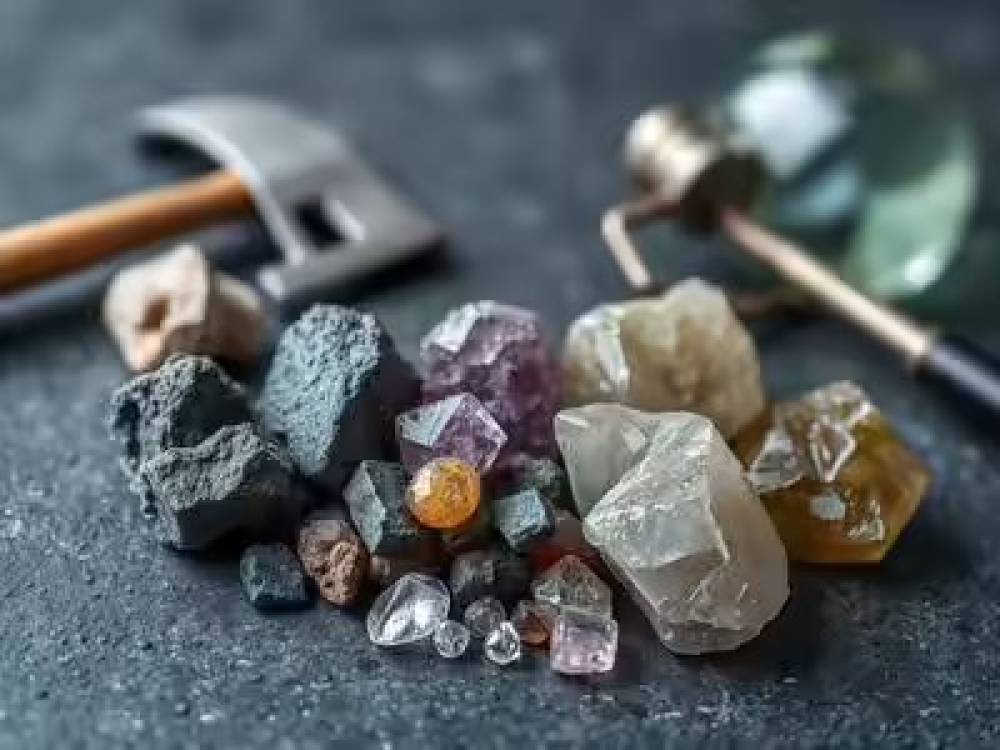
Ấn Độ đang đàm phán với Úc để tiếp cận đất hiếm và đồng nhằm giảm sự phụ thuộc vào Trung Quốc
-
Ấn Độ và Úc đang tiến hành đàm phán về việc hợp tác khai thác đất hiếm, trong bối cảnh Trung Quốc siết chặt xuất khẩu khoáng sản quan trọng gây lo ngại toàn cầu.
-
Trung Quốc hiện kiểm soát hơn 90% công suất chế biến nam châm toàn cầu – yếu tố sống còn trong ngành ô tô, thiết bị gia dụng và hệ thống năng lượng sạch.
-
Các nguyên tố đất hiếm như samarium, gadolinium, terbium, dysprosium và lutetium là nguyên liệu thiết yếu cho động cơ điện, hệ thống phanh, điện thoại thông minh và vũ khí công nghệ cao.
-
Bà Malini Dutt – Ủy viên thương mại và đầu tư của bang New South Wales, Úc – xác nhận rằng các khối đất hiếm có sẵn và Ấn Độ có thể đầu tư ngay từ giai đoạn ban đầu, thiết lập liên minh với doanh nghiệp Úc.
-
Ngoài đất hiếm, Ấn Độ còn thể hiện sự quan tâm lớn đến đồng, với cả khu vực tư nhân và doanh nghiệp nhà nước (PSU) tìm kiếm các mỏ đồng tại Úc.
-
Nhu cầu về đồng tăng do năng lực luyện kim sẵn có trong nước và các khoản đầu tư lớn từ các tập đoàn như Adani.
-
Sự phụ thuộc vào Trung Quốc đang tác động tiêu cực đến chuỗi cung ứng trong các ngành trọng yếu của Ấn Độ, thúc đẩy chính phủ tìm kiếm đối tác đáng tin cậy như Úc.
-
Việc mở rộng hợp tác khoáng sản giữa Ấn Độ và Úc là một phần trong chiến lược dài hạn nhằm đa dạng hóa chuỗi cung ứng và tăng cường an ninh nguyên liệu.
-
Cuộc đàm phán được tiết lộ bên lề Tuần lễ Lưu trữ Năng lượng Ấn Độ 2025, tổ chức bởi Liên minh Lưu trữ Năng lượng Ấn Độ (IESA).
📌 Ấn Độ đang chủ động hợp tác với Úc để tiếp cận đất hiếm và đồng, nhằm giảm rủi ro từ lệnh hạn chế xuất khẩu của Trung Quốc – quốc gia nắm 90% công suất chế biến nam châm toàn cầu. Sự quan tâm từ cả khu vực tư nhân và nhà nước cho thấy Ấn Độ quyết tâm củng cố chuỗi cung ứng cho các ngành ô tô, thiết bị gia dụng và quốc phòng.
https://timesofindia.indiatimes.com/business/india-business/securing-critical-minerals-india-eyes-rare-earths-from-australia-move-to-counter-chinas-export-curbs/articleshow/122326007.cms
Securing critical minerals: India eyes rare earths from Australia; move to counter China’s export curbs
TOI Business Desk / TIMESOFINDIA.COM / Jul 08, 2025, 23:24 IST
India and Australia are engaged in discussions regarding rare earth minerals, prompted by global concerns over potential supply shortages due to China's export restrictions. These talks extend to copper, with interest from both private and public sectors in India, particularly given existing smelter capacity and investments. China's dominance in magnet processing significantly impacts India's automotive and white goods industries.
India is in discussions with Australia to secure rare earth minerals, an Australian official confirmed on Tuesday, as global concerns mount over supply shortages triggered by Chinese export restrictions.“They (India and Australia) are talking about rare earth and there are blocks available. So there is an opportunity for India to take an early-stage block and have tie-ups with a few companies,” said Malini Dutt, trade and investment commissioner, New South Wales Government, Australia.The talks come at a time when China's tightening grip on rare earth exports is impacting key industries, including the automotive and white goods sectors in India. China currently controls more than 90% of the world’s magnet processing capacity, magnets that are critical to automobiles, home appliances and clean energy systems.Speaking on the sidelines of the India Energy Storage Week (IESW) 2025, organised by the India Energy Storage Alliance (IESA), Dutt added that Indian interest goes beyond rare earth minerals.“There is a lot of interest around copper as well, given some of the conversations I have had.
The interest is both from private sector and a PSU which is quite on the hunt for copper (blocks),” she said, quoted by PTI.“You are aware there are smelters and companies like Adani has made a big investment. There is capacity available. There is an abundance of copper. That is one area people are looking at," Dutt explained.China’s export restrictions on rare earth elements and magnets are impacting India’s auto and white goods industries.With over 90% control of global magnet processing, China plays a dominant role in supplying components crucial to automobiles, household appliances and clean energy technologies.These rare earths—such as samarium, gadolinium, terbium, dysprosium and lutetium—are key to electric motors, braking systems, smartphones and missile systems.
Thảo luận
Follow Us
Tin phổ biến



